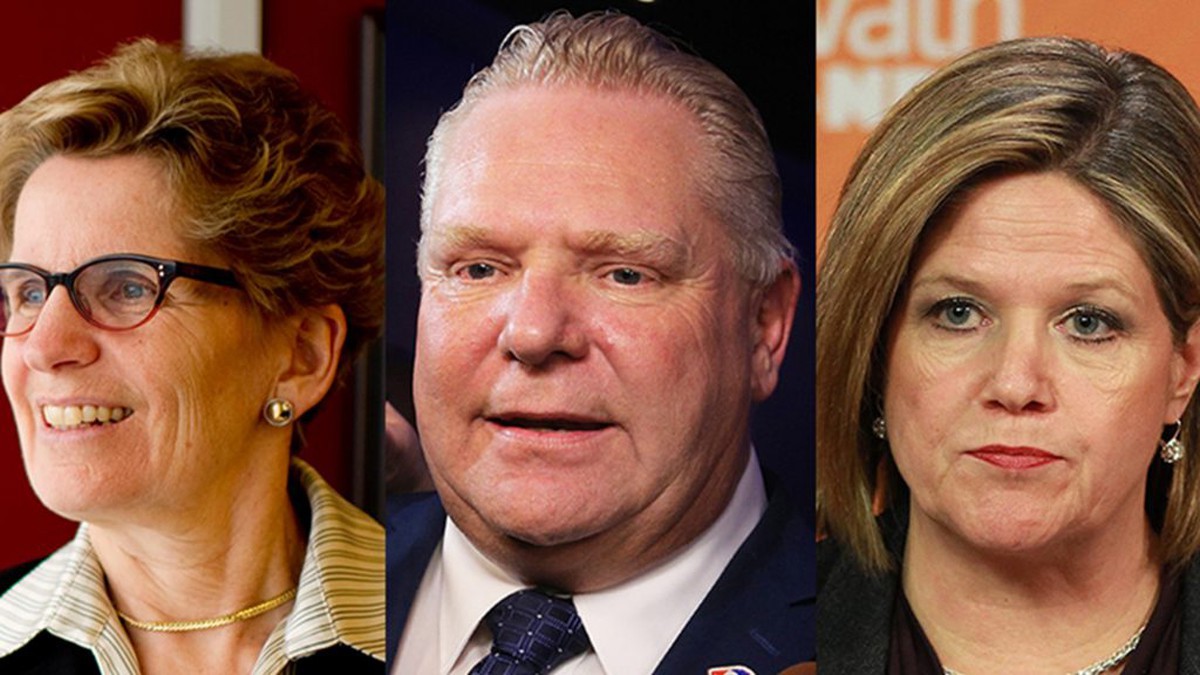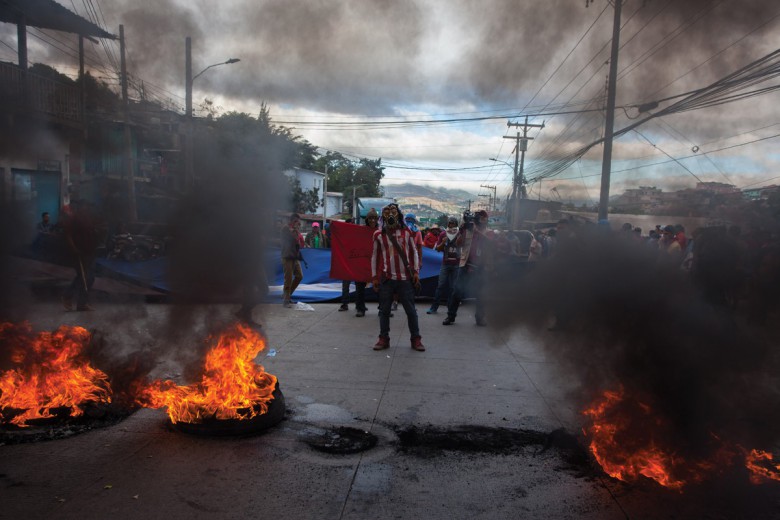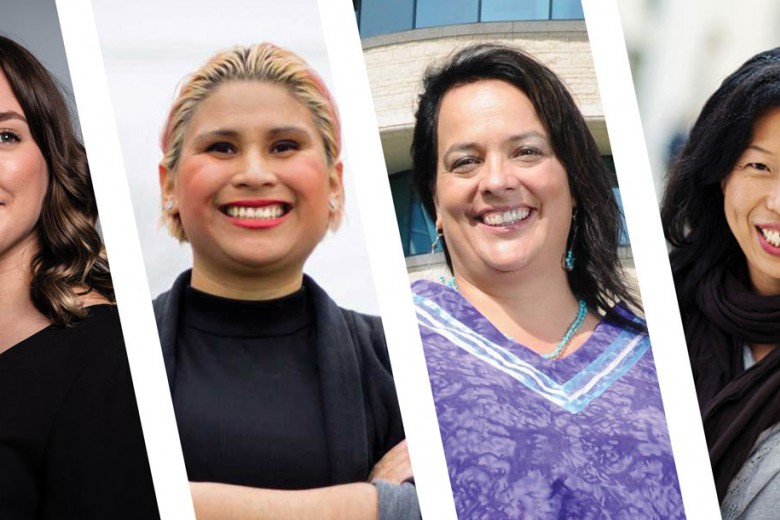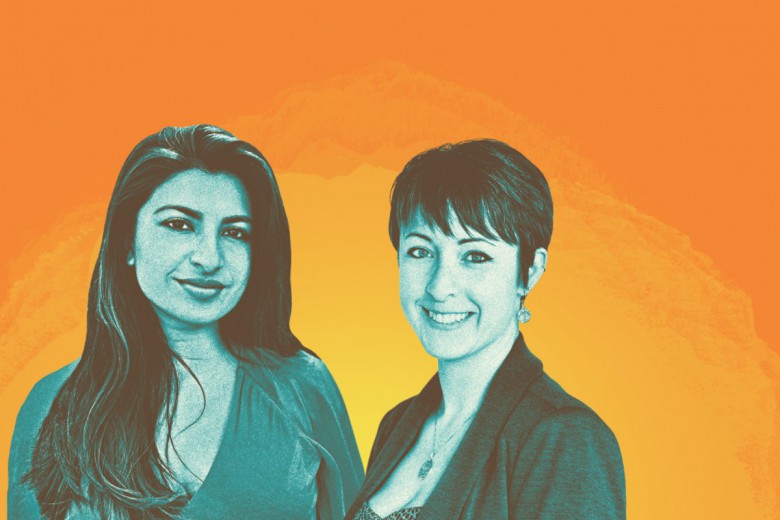For most, an election raises two questions: should I vote? And who should I vote for?
The Ontario general elections are set for June 7, 2018. Doug Ford snatched the Ontario PC leadership, running on a populist platform of repealing Ontario’s new sex ed curriculum, stopping the minimum wage increase, and restricting access to abortion. The Liberals, under Kathleen Wynne, are smelling defeat and tacking left, promising progressive changes like free childcare for many. The NDP and Andrea Horwath have gone even further, promising the Liberal goodie bag plus universal Pharmacare, dental care, and more.
But an election is about more than whether and for whom you should vote. It’s an opening to push conversations towards just futures, within an atmosphere of heightened debate over political, social, and economic issues. The result of an election and the arrival of a new government often has a material impact on the most excluded and illegalized people. But should we intervene in the conversation? How, and with what goals? Is it the best use of our energy to engage with elections?
An election is an opening to push conversations towards just futures.
I invited five Ontario activists that I greatly respect to weigh in on these issues. I asked them all the same two questions, followed by one personalized question. Their ideas represent some (though not all) of the key schools of thought on elections. If you agree with their ideas, join them (or others like them near you) – or start your own collective. More than anything else, we need many more people organizing together to build the worlds we want to live in.
How should we engage with Doug Ford in the upcoming Ontario election and after? Should we even engage in the elections?
Pam Frache is the Coordinator of the "Fight for $15 and Fairness":https://www.15andfairness.org/ and an organizer with the Workers’ Action Centre. Pam has also served as Education and Research Director for the Ontario Federation of Labour and Campaigns and Government Relations Coordinator for the Canadian Federation of Students-Ontario. She is a longstanding social justice and labour activist based in Toronto.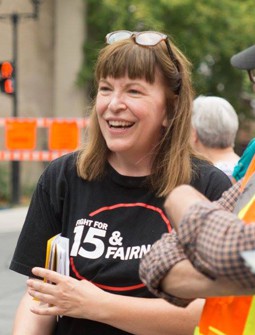
Pam Frache: We cannot allow Doug Ford to masquerade as a defender of the “little guy” when he is driving an agenda that will make life worse for those he purports to protect. But we won’t beat Doug Ford by offending his base with derision and insults. For in every populist message Ford delivers, there is also a kernel of truth that we must patiently identify and try to explain. In this way, we can help focus the legitimate anger that people feel about the system in a constructive direction. Ford is a pro-business candidate and opposes any measure that may cut into corporate profit. That’s why he is unlikely to support changes that raise wages or give workers more agency on the job. If we intervene in this election with bold, working-class demands, we can help polarize the election between corporate interests and the rest of us, which can help expose Ford’s real agenda. But to succeed, we need an even stronger movement for decent work. That’s why building a multi-racial, working-class movement is our foremost task before, during, and after the June election.
John Clarke first became involved in anti-poverty struggles in 1983 when he helped form the Union of Unemployed Workers in London, Ontario. Since 1990, he has worked as an organizer with the "Ontario Coalition Against Poverty":http://ocap.ca/ (OCAP).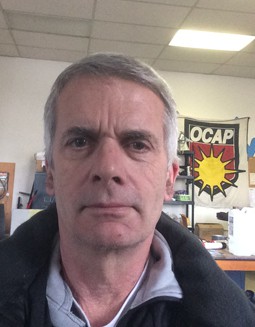
John Clarke: The Ontario Coalition Against Poverty (OCAP) thinks it is not a good idea to promote the ‘lesser evil’ theory, and we don’t want to support the Liberals in any way. But Ford represents an intensification of the regressive agenda – and the provocative nature of his electoral campaign may give us reason to target this as he campaigns. If he is elected, his Government will be waging war on workers and communities and either we’d defeat his agenda or suffer huge losses. Our goal would have to be a real common front of social mobilization against Ford and the Tories.
Vanessa Gray is a Anishinaabe kwe from the Aamjiwnaang First Nation, located in "Canada's Chemical Valley":http://anishinabeknews.ca/2015/01/07/sisters-host-toxic-tours-of-their-home-in-canadas-chemical-valley/. As a grassroots organizer, land defender and educator, Vanessa works to decolonize environmental justice research by linking scholarly findings to traditional teachings.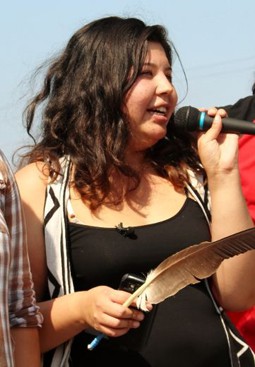
Vanessa Gray: Unfortunately, all of our problems cannot be solved through elections. We should engage by showing commitment and support to the communities impacted by the Ring of Fire. Ford is another example of white supremacy, which wants to grow the Canadian economy. These days, the dominant political agenda seems to be one that is working against the scientific evidence that we need to cut down our emissions. While First Nations people continue to bear the brunt of the impacts on the land, the so-called “progress” is never enough for some Canadians.
Sandy Hudson is a community organizer and founder of "Black Lives Matter - Toronto":https://blacklivesmatter.ca/ (BLM - TO). Over the last three years, Sandy and her team have successfully agitated for the first review of the Special Investigations Unit in its history, and ended the practice of placing targeted police officers in Toronto District School Board schools with high Black student populations.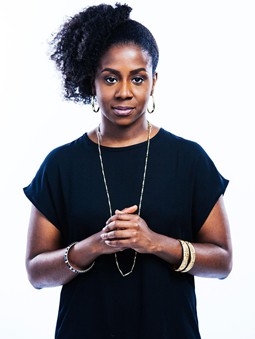
Sandy Hudson: Ford and his party’s obsession with destroying the sex ed curriculum and access to reproductive choice may sound outrageous, but we all know by now how this game works. The very act of raising these issues in the debate gives their reconsideration a legitimacy that they otherwise wouldn’t have. It has already begun to shift discussions to the right. We need to raise our own principed positions that truly shift conversations to the left. Reducing hospital wait times isn’t going to do it. Let’s talk about nationalizing our communications infrastructure, free education, and demilitarizing police. The way to make these issues a factor in the debate is to mobilize a base that makes it impossible for the politicians vying for election to avoid taking a position on them. As a Black Lives Matter (BLM) activist, I can tell you that it is possible to force local, provincial and federal discussions on what some people may have thought were “controversial” issues. We did it by mobilizing, sticking to our principles, and never letting up.
The very act of raising these issues in the debate gives their reconsideration a legitimacy that they otherwise wouldn’t have.
Chris Ramsaroop is an organizer with "Justicia for Migrant Workers":http://justicia4migrantworkers.org/justicia_new.htm (J4MW), a grassroots activist organization that works with migrant workers employed under Canada's Temporary Foreign Worker program.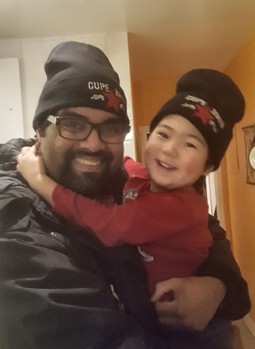
Chris Ramsaroop: From the perspective of working with communities that, by design, are excluded from traditional methods of “civic engagement” like electoral politics, it’s critical that we don’t fall into the trap of believing all our problems can be fixed through elections. The Conservatives (like the Liberals) continue to use racially coded language to exclude migrants from basic access to healthcare, employment standards, the right to organize, etc. Our organizing work will continue to focus on the structures of migrant worker schemes and we will continue to chip away at the facade of the notion of the Canadian nation state as benevolent when it’s premised on theft, dehumanization and exclusion of migrant workers.
By and large, Conservative and Liberal policies are pretty much the same with respect to working class communities. Our work on the ground must be to challenge the inherent divisions that capitalists use to divide workers, such as racial and gender divisions in the workplace, but also to identify spaces where solidarity has been built and continues to be built.
What are the lessons from your histories of organizing (for the Days of Action, Stop the Cuts, Fight for 15, BLM etc) that are particularly valuable in this moment? How should they shape movement strategy?
Pam Frache: On November 29, 2016 – just 21 days after Trump’s election – thousands of workers in 340 cities (including 20 airports) took strike action, organized by the U.S. Fight for $15. They demanded not only a $15 minimum wage and the right to join unions, but also an end to racist police killings, an end to deportations, and for universal healthcare. Remember, the world expected Democratic presidential nominee Hillary Clinton to become president and most were shell-shocked when Trump prevailed. Asked how they pulled off 340 strikes just three weeks after the election – while most were reeling and demoralized – U.S. Fight for $15 organizers gave a simple answer: “We didn’t. We all thought Clinton was going to win the election, so workers had been preparing these strikes for weeks. Workers know they can’t rely on politicians.” The strikes involved not just fast food workers, but child care workers, home-care workers, airport workers, and even contract faculty. Hundreds were arrested on the day, among the workers: faith leaders and other community advocates. This bold action helped inspire the incredible resistance that followed, including the airport workers and taxi drivers who shut down airports across the U.S. in response to Trump’s Muslim ban, and the millions who marched in the women’s march in the U.S. and around the world.
“Workers know they can’t rely on politicians.”
John Clarke: The key lesson of the Days of Action against Mike Harris’ Conservative government in ‘95 is that we won’t win if we aren’t prepared to take things to the level necessary. The campaign in the ‘90s showed incredible power but it was frittered away by escalating and de-escalating the struggle, and by failing to adopt a perspective of raising the level of action to the point where the Tories either capitulated or faced a movement capable of creating political and economic disruption on a decisive scale. Those within unions and social movements who accept the logic of this strategy should start talking and planning right now.
Vanessa Gray: Through the rallies and strikes in Ontario, the common thread has been generational gaps between students and political activists (mostly academic). I think we should question how accessible our movements are, because the support Doug Ford has comes from a larger number of people who don’t follow the political agenda that most of us can barely keep up with. While our movements are unique and beautiful, we need to find time to meet and come to terms with the fact that we have a common enemy.
John, would building the “common front” you talk about entail creating a new structure, or bolstering an existing one? What are some coordinated activities for this front to enact?
John Clarke: If Ford is elected, he will most likely want to move quickly with his austerity measures and related social regression. When the Harris Tories came to power in the ‘90s, they enjoyed a period where the left was shocked into demobilization, allowing them to push through their initial work. We want to initiate action as quickly as possible, but also to escalate the response from forms of moral appeal to those that are disruptive and powerful enough to actually force the Tories into retreat. As that struggle emerges, I would expect that some kind of formal union or community alliance would be created, after a round of meetings and discussions. But right now, I think the focus is on trying to bring together a caucus of organizations and individuals that share the goal of resistance and stopping the Tories. The Days of Action taught us that that kind of caucus needs to stay in place once the main organizations are moving. This time around, the fight-back needs to be much more decisive and based on a plan to escalate pressure – and that will require those of us who share this goal to do more than stand at the back of the crowd chanting slogans about shutting down Ontario.
Vanessa, in regards to the election, what are specific mechanisms to strengthen anti-colonial analysis and action?
Vanessa Gray: Until Indigenous peoples have attained self-determination, we deserve to be able to participate in provincial politics in a meaningful way. The Canadian government continues to prioritize the economy over Indigenous nations that are struggling to reconnect with our cultures and lands. The politicians work against our interests, like securing drinkable water, adequate housing, food sovereignty, and culturally relevant education. Every nation whose land Ontario occupies should be represented in provincial decision-making, and all decisions should require the free, prior, and informed consent of the Indigenous nations that would be impacted.
Pam, what are some specific strategies that $15 and Fairness will be using in the next nine weeks to win over workers? On another note, do you think there is a need or a space for a coordinating body – a “common front,” like John suggested?
Pam Frache: We see workers, not politicians, as the drivers of change. The whole movement for $15 and Fairness has been built by small groups of committed people having conversations (in as many different languages as possible) with other groups of people. It doesn’t sound very exciting. But it is through these thousands of conversations and actions that we have been able to knit together a network of leaders committed to fighting for decent work and wages. Organization will be crucial for the struggles ahead, no matter who forms government. In our experience with the fight for $15 and Fairness, the process of involving others in the campaign poses the question of organization. The more we persuade, learn, activate, involve, assess, energize, motivate, and even make mistakes, the more likely we are to grow and expand organization over the long run.
No matter who forms the next government, we want them to be too afraid to attack our gains.
We are fighting for a big vision for decent work, before, during, and after the Ontario election. This big vision has been developed by workers themselves and will require a united working-class movement make it a reality. To that end, we have three tactics. First, we are redoubling our effort to collect as many signatures as we can on a big visiof to implement and fund $15 and Fairness (and invite each signatory to join the movement). Second, we want to make existing support as visible as possible, so we want to decorate doors, windows, lawns, bulletin boards, and community hubs of Ontario with “Proud to support a $15 minimum wage and decent work for all” signs and banners. Third, we are co-sponsoring, along with the Ontario Federation of Labour, a decent work rally on June 16, so that, no matter who forms the next government, we want them to be too afraid to attack our gains, and instead feel the heat to deliver more.
Chris, you talk about challenging the inherent divisions that capitalists use to divide workers. How do we challenge these deeply-rooted divisions in a short period of time before the election? How can short term strategies build towards a long term project?
Chris Ramsaroop: I agree with John that learning from the experiences of the Days of Actions, there needs to be a space – a common front, a caucus, or whatever we want to call it – where we engage in organizing and action that pushes boundaries. The Harris period was marked by a consistent and intense fightback that was both militant and creative – it encouraged unconventional strategies. For younger organizers – like myself, at the time – it was critical in developing our awareness of what we can and should demand of the state. Whether it was large mass protests or small autonomous actions, people came together first out of a necessity to counter Harris’ reactionary strategies, but also to demand a future that was not premised on austerity nor on begging for scraps. The fight-back is for the short term, but for the long term we need to develop and sustain a community of resistance. As we move forward, it’ll be critical to ensure that young comrades don’t burn out, and older comrades are not pushed out.
People came together to demand a future that was not premised on austerity nor on begging for scraps.
Part of our work over the next nine weeks will be to engage with migrant workers about the significance of this election. Wedge politics will mark this election and, learning from our past organizing work, we will need to engage with allies across the province to counter the impending xenophobia and anti-immigrant hysteria. There won’t be a cookie-cutter approach to fighting back. Each community struggle will look differently because the terrain is different.
Leamington, for example, has a very different geography to Simcoe, Tillsonburg, or any of the other communities that we organize in. Justicia for Migrant Workers’ (J4MW) Harvesting Freedom campaign taught us that interventions at local farmers’ markets were critical in forcing a conversation about food production, racism, and white supremacy. We also faced extreme hostility in these spaces, where our adversaries felt compelled to “protect the family farm.” In the past we have also intervened in local election debates – a few years back we brought a bus load of migrant workers who demanded to have a say in electoral issues. This simple, mundane act of “civic engagement” was met with police, who cordoned off the migrant workers from the rest of the audience. As a result of the heightened exploitation that migrant workers face (being tied to an employer, absence of labour and social mobility, constant threats of deportation) we will need to be creative in our approaches and to use this moment to build long term.
Sandy, you talk about changing the message to push the conversation left. What are strategies or messages that most Ontario organizations can take up during the next nine weeks?
Sandy Hudson: At this stage in the game, I think organizations should think about using a strategy that demands that our most urgent issues – the ones that mean life or death for those of us who are workers, who are migrants, who are Indigenous, and who are Black – are considered, publicly, and at a time when those who hold the levers of power are most vulnerable. Our issues are the most urgent, and we should frame them as such. Politicians so often treat the issues that result in the disruption of our lives as inessential “special interest” issues. We need to creatively and strategically use public space to force mainstream media to put our issues front and centre. Politicians know that generally, the public will support our demands if they are aware of them. So they do everything they can do avoid publicly reckoning with them. It’s our job to make that suppression of our issues impossible.


